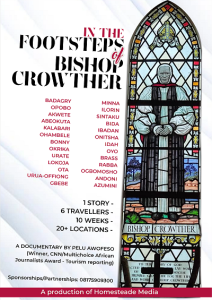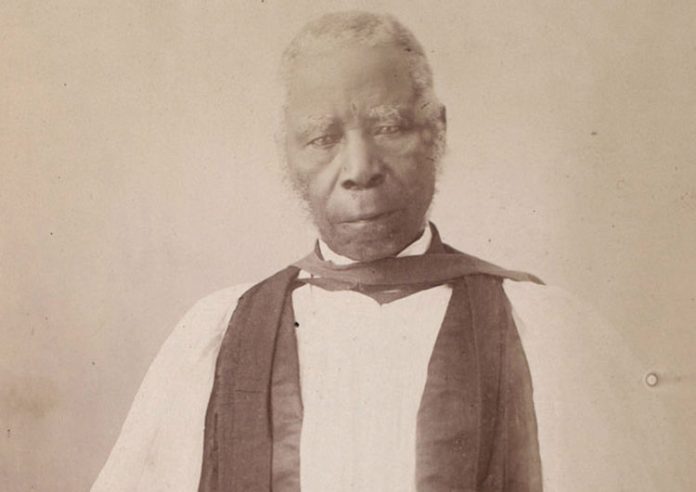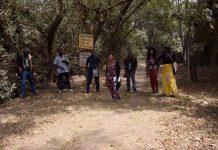
Samuel Ajayi Crowther
The ship taking them to America, where he and others would be resold was intercepted by the British Navy’s Anti-slave trade patrol, and taken to Freetown, Sierra Leone, where all the slaves on board were set free.In Sierra Leone, young Ajayi became a Christian and after baptism adopted Samuel Crowther, the name of an eminent clergyman in England.
In 1826, Crowther was taken to England to attend St Mary’s Church and the church’s school. Returning in 1827, he joined others as pioneer student of the newly opened Fourah Bay College, an Anglican missionary school. He studied Latin, Greek and Temne, and taught in different schools.
He contributed immensely towards Niger Expedition and was ordained in 1843. With Henry Townsend and C.A. Gollmer, he then opened a new mission in Abeokuta.
Crowther played a prominent role in the production of the Yoruba bible, which set standards for the translations of other African languages. His visit to Britain in 1851 influenced the British government, the church, and public about Africa. This also contributed to his opening a new mission on the Niger Area in 1857 and in 1864 appointed ‘Bishop of the countries of Western Africa beyond the Queen’s dominions.’
In the upper and middle Niger territories Crowther pioneered an early form of Christian-Muslim dialogue for Africa. He oversaw J.C. Taylor’s groundbreaking work in Igboland and directed the evangelization of the Niger Delta, with notable results at different center, including Bonny.




